The Unfair Filmfare
Excerpts from Cinemaghar written by Atul Merchant ‘Jataayu’.
The joke of the century was that the most mediocre film Be-Imaan bagged 7 Film fare Awards in 1973.
Years of allegations about the media corruption and unfair practices in Award nominations was proved beyond doubt in the year 1973 when Be-Imaan was awarded as the Best Movie, Manoj Kumar as the Best Actor, Sohanlal Kanwar as the Best Director, Shankar Jaikishan as the Best Music Director, Mukesh as the Best Male Playback, Verma Malik as the best Lyricist and Pran as the Best Supporting Actor. All the awardees shamelessly and brazenly accepted their awards with the sole exception of Pran, who refused to accept the award unless the award for The Best Music was given to Pakeezah instead of Be-Imaan.
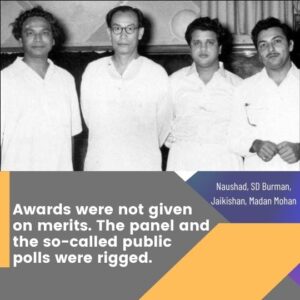 The music director of Pakeezah Gulam Mohammed was dead, and no one cared to award or reward him for his brilliant score in Pakeezaah. It was also a great injustice to both RD Burman and Kishore Kumar for not being awarded for their fabulous performances in the films Amar Prem, Mere Jivan Saathi, Jawani Diwani, Apna Desh and many other good songs which they gave in the year 1972.
The music director of Pakeezah Gulam Mohammed was dead, and no one cared to award or reward him for his brilliant score in Pakeezaah. It was also a great injustice to both RD Burman and Kishore Kumar for not being awarded for their fabulous performances in the films Amar Prem, Mere Jivan Saathi, Jawani Diwani, Apna Desh and many other good songs which they gave in the year 1972.
This had been going on for many years. Awards were not given on merits. The panel and the ‘so-called’ public polls were rigged. Way back in 1961, Shankar Jaikishan got the Filmfare award for Dil Apna Aur Preet Parai, though every individual in the subcontinent with intact audio sensory apparatus, was convinced that Naushadji deserved the award for Mughal-e-Azam. Obviously, Naushadji was heartbroken.
Again in 1962, Ravi got the Filmfare award for Gharana, though much better songs were given by Naushad in Ganga Jamuna, and by Shankar Jaikishan in Jis Desh Me Ganga Behti Hai. More shocking was Dilip Kumar not getting the best actor award for one of the all-time great performances of Bollywood in Ganga Jamuna, and Raj Kapoor bagging it for Jis Desh Me Ganga Behti Hai.
In 1963, SJ got the Filmfare award for Professor, which doubtlessly had some great songs, but was of no match to Madan Mohan’s two ghazals in Anpadh which deserved all the awards that ever existed.
Mahendra Kapoor won the Best Singer Filmfare Award, for arguably his career-best song Chalo Ek Baar in Gumraah, but in the same year, Rafi sang numerous songs better than Mahendra Kapoor; especially the title song of Mere Mehboob, and in many other films like Taj Mahal, Phir Wohi Dil Laya Hun, Tere Ghar Ke Samne, Dil Ek Mandir, Shahid Bhagat Singh etc,.
In the same year, Lata Mangeshkar too sang far better than Mahendra Kapoor, especially in the songs like Jurm-E-Ulfat Pe (Taj Mahal), Ruk Jaa Raat Thahar Jaa Re of (Dil Ek Mandir), Raat bhi hai kuch bhigi bhigi (Mujhe Jeene Do), and many other songs. In his lifetime, Mahendra Kapoor could never match the caliber of Asha Bhosle’s Ankhon se jo utri hai dil mein (Phir Wohi Dil Laya Hun) released in the same year.
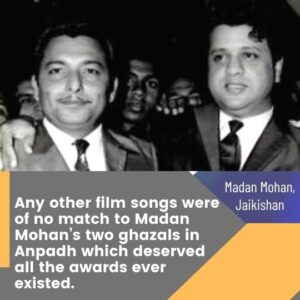 S.D. Burman gave three aces in the year 1963; Bandini, Meri Surat Teri Aankhen, and Tere Ghar Ke Samne. Filmfare award had been eluding Burmanda for a decade and he was quite optimistic of getting it this year. When the awards were to be announced, Burmanda was in the hospital recovering from cataract surgery. Bandages were tied to his eyes. With child-like eagerness, blindfolded Burmanda kept asking if the newspaper was delivered. Finally, when his gurubhai and assistant Manna Dey came to him with the newspaper, he asked, “You got the newspaper?” When Manna Dey in a grim voice said yes, and kept quiet, Burmanda guessed the situation. “Nahin milaa naa – didn’t get the award, no?” Manna Dey kept quiet and saw tears rolling down from Burmanda’s bandaged eyes.
S.D. Burman gave three aces in the year 1963; Bandini, Meri Surat Teri Aankhen, and Tere Ghar Ke Samne. Filmfare award had been eluding Burmanda for a decade and he was quite optimistic of getting it this year. When the awards were to be announced, Burmanda was in the hospital recovering from cataract surgery. Bandages were tied to his eyes. With child-like eagerness, blindfolded Burmanda kept asking if the newspaper was delivered. Finally, when his gurubhai and assistant Manna Dey came to him with the newspaper, he asked, “You got the newspaper?” When Manna Dey in a grim voice said yes, and kept quiet, Burmanda guessed the situation. “Nahin milaa naa – didn’t get the award, no?” Manna Dey kept quiet and saw tears rolling down from Burmanda’s bandaged eyes.
Those who understood music were perpetually baffled by the musical quotient and integrity of those in charge of giving awards. When they nominated Sant Gyaneshwar song Jyot se jyot instead of Khabar mori na of the same film flawlessly sung by Lata. Again, when they awarded Lata with Ravi’s Khandan song Tumhi meri manzil instead of Kalyanji Anandji’s Himalay Ki Gode Mein song Ek Tu Na Mila. Ravi was awarded as the best music director for Khandan, though Kalyanji Anandji gave much better music in Himalay Ki Gode Mein, and Jaikishan (as the solo music director but under the banner of Shankar-Jaikishan) gave mind-boggling songs in Arzoo.
A few days before the declaration of 1966 Filmfare awards, a tout approached S.D. Burman, and offered to manage the Filmfare award for a certain amount for the film Guide. Burmanda was furious. He said, “It is not that I can’t spend this amount. I know that the benefits of getting a Filmfare award are far greater than the amount you are demanding. But I’d rather spend money on my fans than on a tout like you.
It proved one hell of a traumatic shock for SD Burman, when the 1966 Filmfare award went to SJ’s Suraj instead of the well-deserved all-time great musical Guide. Mohammed Rafi too was furious but he was pacified with the best singer award for his Baharon phool barsaao song of Suraj, instead of his Guide songs. However, the irony was Rafi’s Baharon phool barsaao song had a tie with Sharda’s Titli udi song from the same movie. It was a grave injustice to Lata Mangeshkar for not getting any awards. In spite of singing far better than anybody ever did in the history of Bollywood music.
Sharda was no match for Latabai’s singing prowess. In the years to come both Shankar and Sharda had to face a lot of music because of this misadventure. Funnier for Lata Mangeshkar was that from her three fabulous solos of Guide, Filmfare ended up nominating the least of her three songs. This enraged Latabai. Swords were drawn and thenceforth, life was never easy either for Shankar or for Sharda.
Apart from Guide, in the year 1966, Lata sang some unforgettable songs for which she got no award. Mera Saya: Tu Jahaan Jahaan Chalega – (Title song composed in Raag Nand), Anupama: Kuchh dil ne kaha, Do Badan: Lo aa gayi unki yaad, Amrapali: Tumhe yaad karte karte, Mamta: Rehte the kabhi jinke dil mein, Mamta: Vikal mora manva is One of the greatest classical renditions by Lata Mangeshkar.
Post-1967 separate categories for Best Male Singer and Best Female Singer were created. Which somewhat reduced the friction between Rafi and Lata. However, Bollywood waters were too murky. Not that Asha Bhosle didn’t deserve an award, but for heaven’s sake not for Garibon Ki Suno from Ravi’s Dus Lakh. Asha herself sang much better solos that very year than the one she was awarded for. To give you a couple of examples, the song composed by OP in Sawan Ki Ghata: Meri jaan tum pe sadke and SD’s Jewel Thief: Raat akeli hai, bujh gaye diye
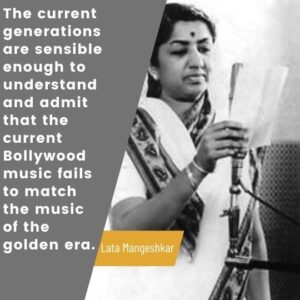 Lata Mangeshkar too sang many better songs that year than the song Asha was awarded for. For example: SD’s Jewel Thief: Rula ke gaya sapna mera, RD’s Baharon Ke Sapne: Kya jaanu sajan, LP’s Shagird: Udke Pawan Ke Sang Chalungi, Roshan’s Bahu Begum: Duniya kare sawal to hum.
Lata Mangeshkar too sang many better songs that year than the song Asha was awarded for. For example: SD’s Jewel Thief: Rula ke gaya sapna mera, RD’s Baharon Ke Sapne: Kya jaanu sajan, LP’s Shagird: Udke Pawan Ke Sang Chalungi, Roshan’s Bahu Begum: Duniya kare sawal to hum.
Lata Mangeshkar has been perennially alleged to play dirty politics. Looking at the series of ridiculous Filmfare Awards, I wouldn’t blame Latabai even if she played dirty. Too many dirty people were playing too many dirty games in Bollywood anyway, why single out Lata Mangeshkar?
The musical quotient of the current generation has gone down to a level shamefully low. They are sensible enough to admit that the current Bollywood music fails to match the music of the golden era. However, some brainless debates people indulge in these days irritate me.
For those who do not agree that Lata was the best, I have numerous songs to prove her might. Provided they have the elementary sense of music in them. Let them listen to this song and let them shut up for the rest of their lives. The song is from the film Seema (1955) based on Raag Jayjaiwanti: Manmohana Bade Jhuthe. Please don’t miss Pt. Ramnarayan’s magical Sarangi in this song.
Talking about the 1967 best male singer award, once again Mahendra Kapoor was awarded as the best male playback singer for the song: Neele gagan ke tale of Humraaz. In the same year, Rafi sang at least a dozen songs better than the one Mahendra Kapoor was awarded for. To mention just a few: Kalyanji Anandji’s Raaz: Akele hain Chale Aao, Roshan’s Bahu Begum: Hum intezaar karenge, SJ’s An Evening In Paris: Akele akele Kahaan Jaa Rahe Ho, LP’s Patthar Ke Sanam: Patthar Ke Sanam Tujhe Humne, LP’s Night In London: Nazar Na Lag Jaaye.
In 1968, the best music award went to LP for Milan, other nominees being KA’s Upkar and Ravi in Humraaz; totally ignoring SD’s Jewel Thief, SJ’s An Evening In Paris, and LP’s Shagird. Rafi sang at least half a dozen songs better than Mahendra Kapoor’s Nile gagan ke tale of Humraaz for which he was awarded the best male singer of the year.
The best song of Milan sung by Lata Aaj Dil Pe Koi Zor Chalta Nahin composed in Charukeshi scale was not nominated for the award but musically much weaker song Sawan Ka Mahina was nominated. Lata Mangeshkar really deserved an award for the excellent rendition of the title song Aaye Din Bahaar Ke.
Asha Bhosle, who sang many great songs, especially with OP, deserved many awards that she never got. However, in the year 1969 again when she got her second Filmfare award, that too in succession, for the song Parde mein rehne do of Shikar was surprising, as all expected OP’s Kismat song Aao Huzur Tumko to win the award. Over the years, the Shikar song is almost forgotten, but OP’s Aao huzur is invariably present in the top bracket of Ashabai’s all-time hit songs.
However, Madan Mohan not getting a single award all these years was a crying shame. The same year Madan Mohan gave some memorable songs like Na Tum Bewafa Ho and the Title Ek Kali Muskayi. Once again, SD Burman was disappointed when the Best Music award went to LP for Jeene ki Raah instead of the more deserving Aradhana.
By the end of the year 1970, there was the hottest debate in Bollywood. Who would claim the year’s Filmfare award for the best music. Would it be Kalyanji Anandji with their career-best performance in Safar, or would it be the long wait for an award RD Burman for his fabulous music in Kati Patang, or the senior Burmanda for Prem Pujari, or would it be LP for Khilona. The connoisseurs were hoping for their all-time favorite Madan Mohan for his excellent Latabai numbers in Dastak. But, to everyone’s shock, the award went to SJ’s Pehchaan. The above-mentioned film music was not even nominated. It was a grim reminder that Bollywood was a dirty world.
Baiyan na dharo Balmaa – Dastak, Hum Hain Mata-E-Kuchaa-O – Dastak, Hum The Jinke Sahaare – Safar, Jivan se bhari Teri Aankhen – Safar, Zindagi ka safar – Safar, Na Koi Umang Hai – Kati Patang, Ye Jo Mohabbat Hai – Kati Patang, Phoolon Ke Rang Se – Prem Pujari, Rangeela re Tere Rang Mein – Prem Pujari, Shokhiyon mein Ghola Jaaye – Prem Pujari, Sanam Tu Bewafa Ke Naam Se – Khilona, (Khilauna JAan Kar Tum To – Title Song, Khilona.
Yet again for the year 1971, SJ got the Filmfare award for Mera Naam Joker, though the entire subcontinent was spellbound by RD’s Amar Prem songs. The irony was that Amar Prem songs weren’t even nominated. To my mind, SJ’s Lal Patthar had better songs than their songs Mera Naam Joker.
The joke of the year, or should I say century, was the Filmfare’s Best Female Singer Award going to Sharda for a cabaret song composed by none other than Shankar for the film Jahan Pyaar Mile: Baat Zara Aaps Ki.
Disclaimer: This is an Authored Article. No Swar Aalap Digital team member is involved in the creation of this content.



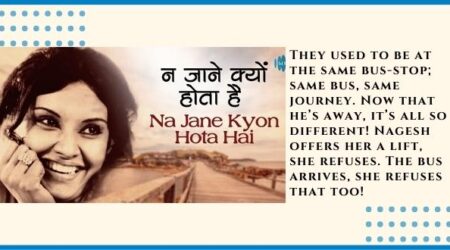
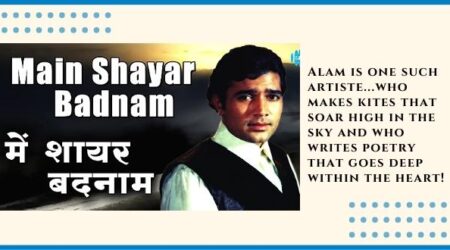
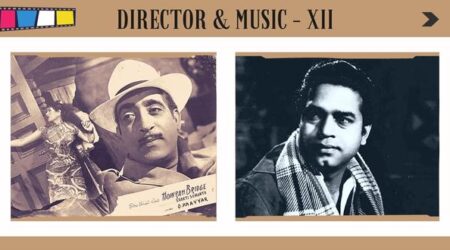
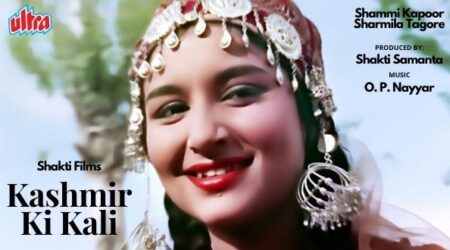
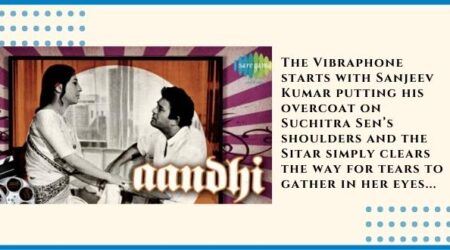
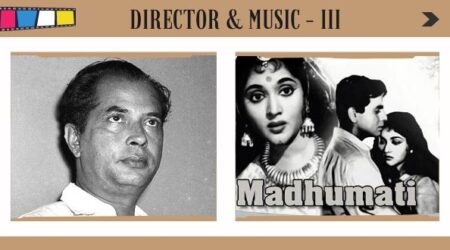

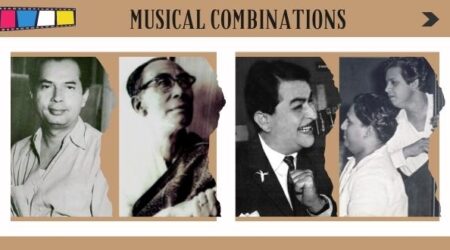
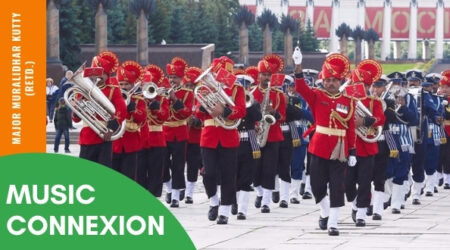
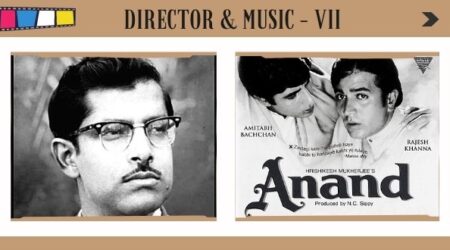

Comment (1)
I guess the song “jai bolo beiman ki” is a perfect one for the situation.